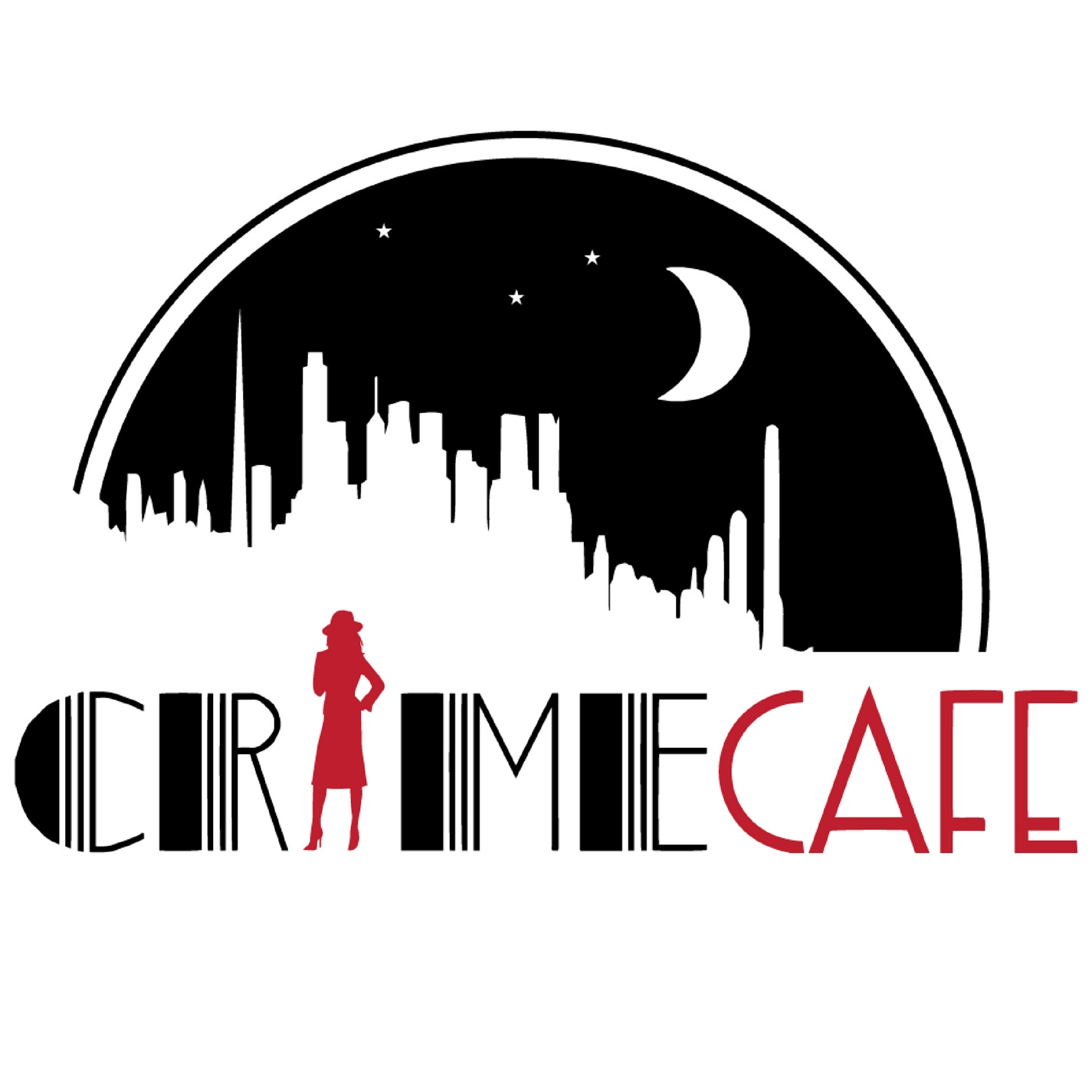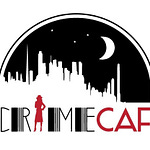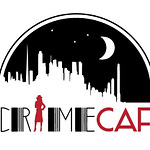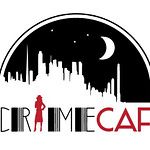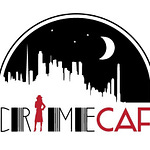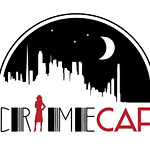Debbi: Hi everyone. Today I have with me the author of the Jorja Knight Mystery series, her debut novel KNIGHT BLIND was an Arthur Ellis award finalist for best unpublished first crime novel in 2016. Her short stories have also been published in various anthologies. She’s a member of Crime Writers of Canada, Sisters in Crime, and the Writers Guild of Alberta. It’s my pleasure to introduce Alice Bienia. Sorry. I’m probably saying that wrong.
Alice: Yeah, no, that was perfect.
Debbi: Oh, great. Oh, my goodness. Thank you very much. It helps that I’m married to an Italian man, whose name is pronounced Ike-Angelo and–
Alice: Oh yeah.
Debbi: Not the way it looks, even though it should be. In Italy, it would be. Maybe that helps. Anyway, thank you so much for being here today. You have a very interesting background, geology. What kind of work did you do before you wrote novels full time?
Alice: Yeah, I was a geologist and I started off my career as a mineral geologist. And so what that involved was going out in the field usually remote areas that hadn’t been really explored before. And my job was to basically map the area, try to figure out what lay in the subsurface. And we were looking for various mineral deposits copper, lead, zinc, uranium—later, coal, and yeah, from there, I migrated into the energy sector and ended up my career after about 30 years working as a consultant to the energy industry. So a lot of work in the Bush, lot of work, living in tents and yeah, and having some great experiences up in Northern Canada.
Debbi: Wow. What parts of Northern Canada?
Alice: Yeah, so I worked in Northern BC, Northern Alberta, British Columbia. I worked in the Arctic I worked offshore in the Beaufort Sea and also in Eastern Canada offshore on some drilling activity offshore in Eastern Canada as well. So yeah, most of my career took me to these wonderful, beautiful places in Canada that are hardly ever seen by anyone, and yeah. Filled with all kinds of interesting animals, environment.
Debbi: Fantastic.
Alice: Yeah. So yeah, it was great.
Debbi: Did you get involved at all in sustainability-type work?
Alice: Well, back in the day, a lot of people might not know this, but most of the companies had environmental departments and that was always a big concern. And so any project that we ran or got involved with that was always a big concern. What’s the impact? Not only, once you found an economic deposit, it was always about, well, is this feasible to get it out? And where are you located? And, what’s the impact on any people living in the area and also the environment. So that was always a top consideration. And actually, a lot of the projects I worked on did not go forward because of a combination of things like negative impact on the environment and combined with possibly an uneconomic unfeasible ability to get that hydrocarbon or that resource out of the ground. So it’s only the rare finds and deposits that actually get turned into a mine or are actually accessed. A lot of it never does get developed
Debbi: Yeah. It has to be like a financial feasibility and certainly a certain amount of community buy-in, I would think.
Alice: Yeah, exactly. Exactly.
Debbi: There’s a lot that goes on with that. I used to do land use law, so.
Alice: Nice. Yeah.
Debbi: I worked with EPA for a while.
Alice: You’d very familiar. Yeah.
Debbi: Interesting. Yeah. Tell us about your series. What inspired you to create this particular protagonist?
Alice: Well it is interesting. I’ve always read like mysteries and thrillers, suspense, sort of that genre. So when I started to write, I did want to write mysteries. I really liked the sort of whodunit. There’s a murder or a crime and the reader goes on the journey, with the author, trying to figure this out. And so I knew I wanted to write a mystery and I also wanted to have my protagonist as a female who’s this strong, independent woman, she’s not going to rely on somebody else to save her, she’s determined, she’s committed. She’s also flawed in the sense that she’s not perfect. She comes from very sort of tough background. There’s a lot of family trauma in her background. And she has had terrible luck with men. So, that aspect of her life isn’t really going well.
I knew I wanted to write a mystery and I also wanted to have my protagonist as a female who’s this strong, independent woman, she’s not going to rely on somebody else to save her, she’s determined, she’s committed.
She’s 38 when, when I opened the series and she used to be a forensic analyst worked in a lab and then a workplace incident where this mass shooter basically a former employee who was disgruntled and came back and managed to take Jorja hostage. And so that’s sort of the precursor to what happened. And after surviving that attack, Jorja realizes that she’s been living life a little too safely, tucked away in the lab. She’s 38 and she really feels that she needs to get out there and put herself out there more and experience more of what life has to offer. So, becoming a private eye is sort of a short jump for her because she’s very analytical in nature and doesn’t require a ton of retraining because she does have to pay the bills and look after herself. So yeah, that’s the character I created in Jorja.
And after surviving that attack, Jorja realizes that she’s been living life a little too safely, tucked away in the lab. She’s 38 and she really feels that she needs to get out there and put herself out there more and experience more of what life has to offer.
Debbi: That’s fantastic. How many books are out in the series?
Alice: So I’m just working on the sixth one, which will be out in this fall and the fifth one came out in March, I guess, of this year was called KNIGHT VISION. So yeah. So I’m still working away and thinking about what I’m going to do with her next.
Debbi: Cool. Do you have a plan overall for how many you’d like to write in the series?
Alice: Well, I hope to keep writing as long as people keep reading them. In my head, I sort of, when I started this, I thought maybe, 12 books in the series. I have sort of a roughly drawn arc for the whole series. So I kind of figure that might take me, somewhere between 10 and 12 books to wrap up the major arc.
Debbi: Good to have a plan like that. That’s great. Some of us start with a plan and some of us don’t.
Alice: Yeah, exactly. Exactly.
Debbi: You sound like a plotter versus a pantser. Am I right?
Alice: Yeah, you’re absolutely right.
Debbi: I recognize a fellow, a fellow plotter.
Alice: You can recognize them. Yeah. I don’t write horribly detailed plots, but I do have to start with sort of an idea, the premise and I have to have an outline of where I’m going. And even though all my books have ended up, like the ending is always ended up different than what I had imagined at the beginning. I still need that sort of rough outline, even if it’s 10, 12 pages that kind of guides me, as I put the thing together.
I don’t write horribly detailed plots, but I do have to start with sort of an idea, the premise and I have to have an outline of where I’m going.
Debbi: Yeah, exactly. Right. I mean, you need something to aim for, even if your aim ends up being a little bit off, it happens.
Alice: Yeah. It does.
Debbi: Let’s see. How would you describe your writing? Is it more thriller oriented or whodunit oriented?
Alice: That’s an interesting question. If you had asked me this, 3 years ago or whatever, I would’ve said I thought I developed it and came at it from a plot basis. So there’s a fair bit of action in the book itself. And then I realized that character plays a huge aspect of it because really it’s, Jorja and my understanding of the character that I created that, in her response to situations that that really drives the action. So, which came first? I don’t know, I think they sort of developed together, but I would describe myself or the writing itself as more of a mystery suspense. A lot of the reviewers today have thankfully said, it’s a real page turner and they can’t put it down.
It’s less thrilleresque in the true definition of a thriller, in the sense that, who did it at the beginning and the protagonist is really just running to try to prevent a bigger disaster from happening. In my case, in the books I write, it’s more of a case of a murder has been committed and Jorja’s trying to find out what happened. I do like to weave in lots of twists and for me, it’s, those are the kind of books that keep me reading, right, is where, the chapter ends and you look at the next chapter and you think, oh, it’s only two pages. I gotta read this. And then it’s 3:00 AM in the morning.
I do like to weave in lots of twists and for me, it’s, those are the kind of books that keep me reading, right, is where, the chapter ends and you look at the next chapter and you think, oh, it’s only two pages. I gotta read this.
Debbi: Exactly. Yeah. I know. I love it when that happens. I love it and I hate it. It’s like, oh my gosh, I have to read, yet another chapter.
Alice: Exactly.
Debbi: It’s so late, yet I just have to read this. Let’s see. Can you think of a particularly memorable experience you had when you were working in the field before you started writing fiction?
Alice: Oh, wow. There were so many, yeah, I can think of tons. I mean, I worked on the offshore oil rigs and I was lucky enough to be evacuated twice in the middle of the night because the Arctic ice was building up and hammering the ship and we had to evacuate. So, there were instances like that and some of them were less fun than the other, but I will tell you one thing, working up north and a lot of times I was just working with one partner and we would go out in these fly camps. So a tent camp, two people, the helicopter would move you about every 10 days bringing you supplies. And other than that, you were out there basically on your own.
For me, storytelling has always been sort of an important part of my life as well as reading. So I’d come back from these fly camps with these stories. And, one of my favourite was that I almost got killed by a reindeer. And I don’t know if you know that Christmas song “Mama Almost Got Killed by a Reindeer” or however it goes. Yeah. So I was out on traverse and, and up in the Arctic and, and it’s very barren and there’s no trees and hardly any hills. And I had been stalked by a Barren land grizzly with two Cubs about a month earlier. So I was still sort of on a hyper-alert and I noticed something moving on the horizon. And so of course, what is that, is that, wolves is that a bear, what is that? And this object came closer and closer.
And I realized that, oh, it’s a caribou actually. So it wasn’t a reindeer, but in my story, it became a reindeer, but this caribou had this massive head of antlers and he got closer and closer, and I’m thinking, what is this caribou going to do? And suddenly he broke into a run and just ran at me. But in the last minute I sort of ducked away and he ran past me and he plunged himself into a little pond that was behind me. And as he rode by, I noticed his whole face was covered in black flies and mosquitoes, because there were about a million of them there. But anyway, I chalked that up to a close call and so later when I was telling the story, I would start off with, I almost got killed by a reindeer.
[T]his caribou had this massive head of antlers and he got closer and closer, and I’m thinking, what is this caribou going to do? And suddenly he broke into a run and just ran at me.
Debbi: Oh my goodness. So what authors most inspire you?
Alice: Oh, well, I read quite widely and, and a lot of thriller suspense mystery writers, I think like a lot of authors like me who write mysteries, Agatha Christie, of course, was huge. I loved her ability to take a simple scene actually and weave a whole mystery into it with all these characters. So she was awesome. I read of course, a lot of Sue Grafton, Sarah Paretsky, those were some of my favourites. This past year, interestingly enough, I discovered an author who’s been around for a while, but I never came across him until about a year ago and that’s Anthony Horowitz. I just loved his MAGPIE MURDERS and Midsummer Murders. I think it was, was another book of his and he, he writes a contemporary sort of, but it really reminds me of sort of Agatha Christie in some ways. And he’s got these mysteries within a mystery, which I find quite intriguing and fascinating. So yeah, lately I’ve been a very, become a very big Anthony Horowitz fan.
Debbi: He sounds interesting. I’ll definitely have to check him out. Let’s see. Do you do a lot of research before you write or when you’re writing?
Alice: I don’t beforehand, but then depending on the nature of the story or plot, I do find, I have to like do some research along the way to, try to build in, that element of realism, even though it is fiction. I know in KNIGHT BLIND the first novel I put out was there was a big element of homelessness in it because Jorja is looking for this person who for her client, a relative that she never thought was alive because the client’s relatives all seem to have perished during World War II, but she gets news that this individual might have survived. And so Jorja is looking for him and her search takes her into sort of the seamy east side of Calgary where there’s a lot of, I shouldn’t say a lot of, but it is the area where there’s a lot of homelessness.
I have to like do some research along the way to, try to build in, that element of realism, even though it is fiction.
I had to do some research on that. And I do have a few friends, one friend in particular, who’s a social worker. So I did know some of the nature of the work that went along with that, but I did end up watching a number of documentaries, interviews with people that had lost their homes or somehow found themselves on the street. And so that became a really good source of information for me to try to portray the characters in my book. Not as a caricature of homeless people, but people that have a past people that got themselves there through a whole series of difficulties. And so that really meshed well with Jorja herself, her past life, and also her client’s life, having escaped the Holocaust as a child and all the trauma that got associated with that. So, yeah, I did a lot of research on that book, and yeah.
Debbi: A lot of work goes into that sort of thing.
Alice: Yes, it does. Yeah.
Debbi: Do you have any advice to give for people who are interested in becoming writers for a living?
Alice: Yeah. Yeah, I think it’s interesting, writers for a living. I think it’s a difference to me, like you can sit down and write pretty easily. It’s the for a living part that’s difficult. One thing I would say to somebody is, if you have this hankering to write, do it before I did like, don’t wait 40 years to start writing. So that would be–
One thing I would say to somebody is, if you have this hankering to write, do it before I did like, don’t wait 40 years to start writing.
Debbi: I hear that–
Alice: That would be number one. Yeah. I think a lot of authors have said, get into the practice of writing, even if you start off just doing half an hour a day, and building from there, but it’s sort of a practice because it takes discipline. And the sooner you start that discipline of like, just sitting down, even on the days, you don’t want to do it. You don’t feel like doing it. You pretty much sit down and it’s amazing how many times, if you force yourself to actually sit down, it works out well. And so it is developing that discipline. And the other thing I think, when I look back on my own career and my own journey, I think it would be very hard to be a writer and earn a living at it, if you were just graduated from school. I think it’s important to have some life experiences that you can draw on, when you’re building your stories and your characters.
I think a lot of authors have said, get into the practice of writing, even if you start off just doing half an hour a day, and building from there, but it’s sort of a practice because it takes discipline.
It’s a long game. I mean, there is the author that occasionally has a big breakout and, and everybody hears about it, but it is a long game and it takes a while to build up a career and a brand and get people to know that you’re out there. And so I think it’s good to have, maybe another job at first, to help you along the way. But, yeah, I think it’s important to start and to be consistent and develop the, develop the practice of writing. And then you can ramp up and escalate that depending on your own sort of situation.
It’s a long game. I mean, there is the author that occasionally has a big breakout and, and everybody hears about it, but it is a long game and it takes a while to build up a career and a brand and get people to know that you’re out there.
Debbi: Great advice. All of it. Is there anything else you’d like to add before we finish up?
Alice: Well, just for your audience that’s watching, if anybody wants to try out one of the Jorja Knight mysteries, I do have a free prequel to this series called KNIGHT SHIFT on my website. If they want to visit me there and they can download it for free and, and see if they are enamoured with Jorja Knight, as much as I am. And having said that I just want to thank you again Debbi for having me on your podcast, and it’s been a real pleasure to be here today.
Debbi: Well, it was a pleasure to have you, and thank you so much for spending time with us. So on that note, I will just say, listeners, please leave a review or follow us on Patreon or support us on Patreon. We have a lot of perks there for people who support us on Patreon. We’ve got a couple of free books. They’re like collections, short stories and novels. We have bonus episodes. We have all sorts of stuff for Patreon patrons. So please do check that out and leave a review if you enjoyed the podcast. And on that note, I’ll simply say, thanks for listening and happy reading.
*****
Check out our Patreon Page!



